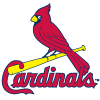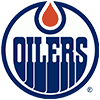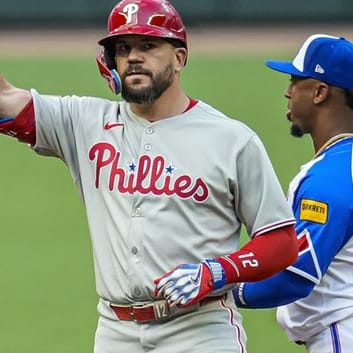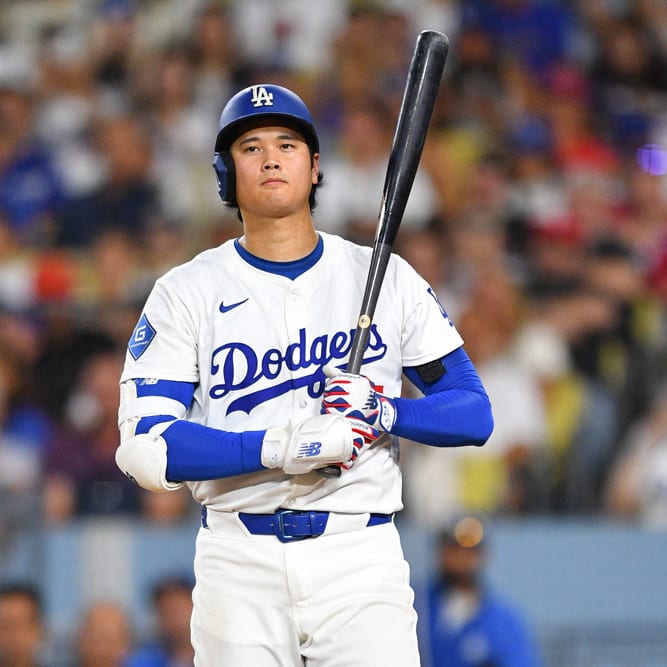One of the most asked about topics in daily fantasy baseball is the strategy of stacking in tournaments. There are so many different things to cover in regard to stacking that I have decided to expand what I have written about into several articles. Initially, I will cover FanDuel, but I will also have some DraftKings strategies in later weeks. For the purposes of this series, I will refer to stacks as at least three players from the same team.
Two articles I wrote about stacking can be found here:
The Art of Stacking – April 19, 2016
I went over the theory behind stacking and what correlation means. I also gave some examples of lineup construction and different stacks like "Ace with Stacking Both sides of 1 Game" and "Value Pitcher with a Mini Stack on Both Sides of Coors."
The Art of Stacking – August 4, 2014
I covered the importance of the batting order and scoring categories. I also wrote about which players make the best stacks for each of the 30 teams in baseball.
Basic Stacking Strategies – FanDuel
4-4 (Four players from Team 1, Four Players from Team 2)
This is an advanced strategy that is hard to pull off for a number of reasons. It is easy to get the first part of the stack with optimal lineup order and consecutive hitters, but then piecing together the second half means the remaining positions need to be filled, salaries need to fit under the cap and your starting pitcher needs to be somewhat viable. I would not recommend this strategy for beginner players.
4-3-1 (Four players from Team 1, Three Players from Team 2, One Player from Team 3)
It is a little easier to make this work, especially if your one hitter from the third team is a low-priced catcher. You are basically punting the catcher position in this strategy. Finding three hitters from the second team gives a little more leeway in that you are not as focused on getting all the hitters in consecutive order. However, you still want to get them as close in the order as possible and as high up.
The other wrinkle to the 4-3-1 stack is if you wanted to take your starting pitcher from a team you are stacking it will count as one of your four hitters, so you can only take three hitters from the same team as your starting pitcher.
4-2-2 (Four players from Team 1, Two Players from Team 2, Two Players from Team 3)
As we get further away from a 4-4 stack your lineup construction will get easier. In this case, you pick your favorite stack of the slate, but then can target several other teams to get two hitters from those games. I like to focus on hitters in the 3-4 part of the batting order in the two mini stacks to get the most power upside. Also, you want to look for RHB vs. LHP and/or LHB vs. RHP in your mini stacks to get the best splits edge.
4-2-1-1 (Four Players from Team One, Two Players from Team 2, One Player each from a different team)
This is your full stack with a mini stack. A good strategy here is taking the top four from a game, but then if you happen to like two other hitters from the same game. It is much easier to game stack with a 4-2 versus a full 4-4 stack.
4-1-1-1 (Four Players from Team One, One Player each from a different team)
This is the best strategy for a beginner player for stacking in tournaments. You get the best four hitters on the best stack that you like on the slate. Next, try to get the best pitcher. Then you can piece in the remaining four hitters. I like to find a stack that is 1B/3B/OF/OF, and then I can find value at C/2B/SS/OF. This way you don't have to feel like you are dropping down too far on the pitcher. The value plays should be players hitting in the top six of the batting order or minimum salary plays with home-run potential.
What starting pitchers should you target against?
• Underdog +150 or greater
• Run Total is 9.0 or greater
• Pitcher is in bottom 20 percent for strikeouts
• Heavy flyball pitcher
• Hitters' park
• Pitcher has WHIP of 1.40 or higher
If you want to take the highest-priced hitters in a stack, you need to save money on pitching. Here are some of the things to look for.
Value Pitcher Strategies (Pitchers priced less than $9,000)
• Favored -150 or greater
• Run Total is 8.5 or less
• Opposing team is top 5 in strikeouts vs. handed pitcher
• Opposing team is bottom 5 in ISO, wOBA or wRC+
• Pitcher has strikeout rate of 8.0 per 9 or higher
• Pitchers' park (preferably National League)
• Pitcher recent strong performance is not priced into salary









































